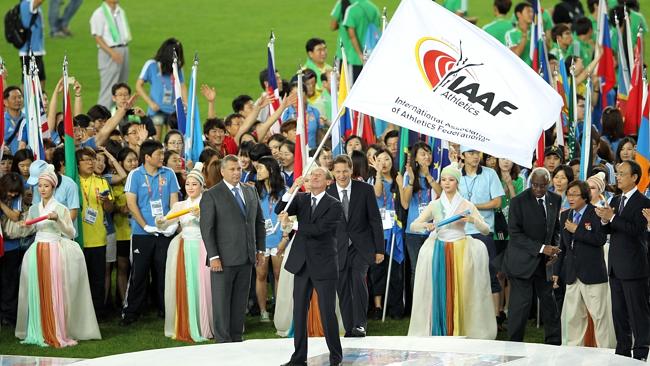-
Tips for becoming a good boxer - November 6, 2020
-
7 expert tips for making your hens night a memorable one - November 6, 2020
-
5 reasons to host your Christmas party on a cruise boat - November 6, 2020
-
What to do when you’re charged with a crime - November 6, 2020
-
Should you get one or multiple dogs? Here’s all you need to know - November 3, 2020
-
A Guide: How to Build Your Very Own Magic Mirror - February 14, 2019
-
Our Top Inspirational Baseball Stars - November 24, 2018
-
Five Tech Tools That Will Help You Turn Your Blog into a Business - November 24, 2018
-
How to Indulge on Vacation without Expanding Your Waist - November 9, 2018
-
5 Strategies for Businesses to Appeal to Today’s Increasingly Mobile-Crazed Customers - November 9, 2018
Results from 800 athletes ‘highly suggestive of doping’
“Reedie says “‘these are wild allegations, wide allegations, and we’ll have to check them out…as quickly as possible”.
Advertisement
“As always, WADA is committed to doing what’s necessary to ensure a level playing field for clean athletes of the world”, he added.
He also announced that given the nature of the allegations, they would be handed over immediately to the organisation’s Independent Commission for further investigation.
“We are concerned at these allegations and we will refer them promptly to the independent commission which is working its way through the original two programs”, Reedie said in Kuala Lumpur, where he is attending IOC meetings.
Ashenden was also critical of the IAAF, saying: “For the IAAF to have harvested millions of dollars from the broadcasting of athletics events around the world…yet only devote a relative pittance of those funds towards anti-doping, when they could see the bad truth of what lay beneath the surface, is… a shameful betrayal of their primary duty to police their sport and to protect clean athletes”.
Australian doping experts Michael Ashenden and Robin Parisotto concluded from the results that 800 athletes in disciplines from 800 metres to the marathon registered values considered suspicious or highly suspicious.
It is claimed that none of these athletes has been stripped of their medals.
Additionally, 10 medals won by athletes at the 2012 Summer Olympics in London were won by athletes who have “dubious test results”, and there were some finals in which every athlete who medaled recorded a “suspicious blood test”.
Although abnormal blood tests are not in themselves proof of doping, the release of the data will be an embarrassment to the IAAF just weeks before the world championships in Beijing, where the IAAF will also elected a new president. “‘So many athletes appear to have doped with impunity”.
The IAAF introduced biological passports for athletics as part of its drug testing regime in 2009, which help in the detection of abnormal fluctuations in red blood cell counts.
“‘Any other approach, in particular the use of data collected over a longer period for different purposes, with different objectives and with different methods of analysis, is nothing more than speculation”, the IAAF said.
On Saturday, Jessica Ennis-Hill called on the IAAF and the World Anti-Doping Agency (Wada) to address the problems that the files highlight. “I am sure they will want to look at it closely to determine the source”, Reedie said.
Sebastian Coe, who is expected to be elected the new president of the IAAF later this month, has said he will set up a new anti-doping body specifically for athletics.
The Ukrainian told the BBC in the IOC congress in Kuala Lumpur: “We invest the most money according to other federations, with all the new innovation to catch the cheaters”.
Advertisement
The 29-year-old Olympic heptathlon champion lost out on gold at the 2011 world championships to a Russian athlete, who had – according to the files – recorded abnormal blood results.




























